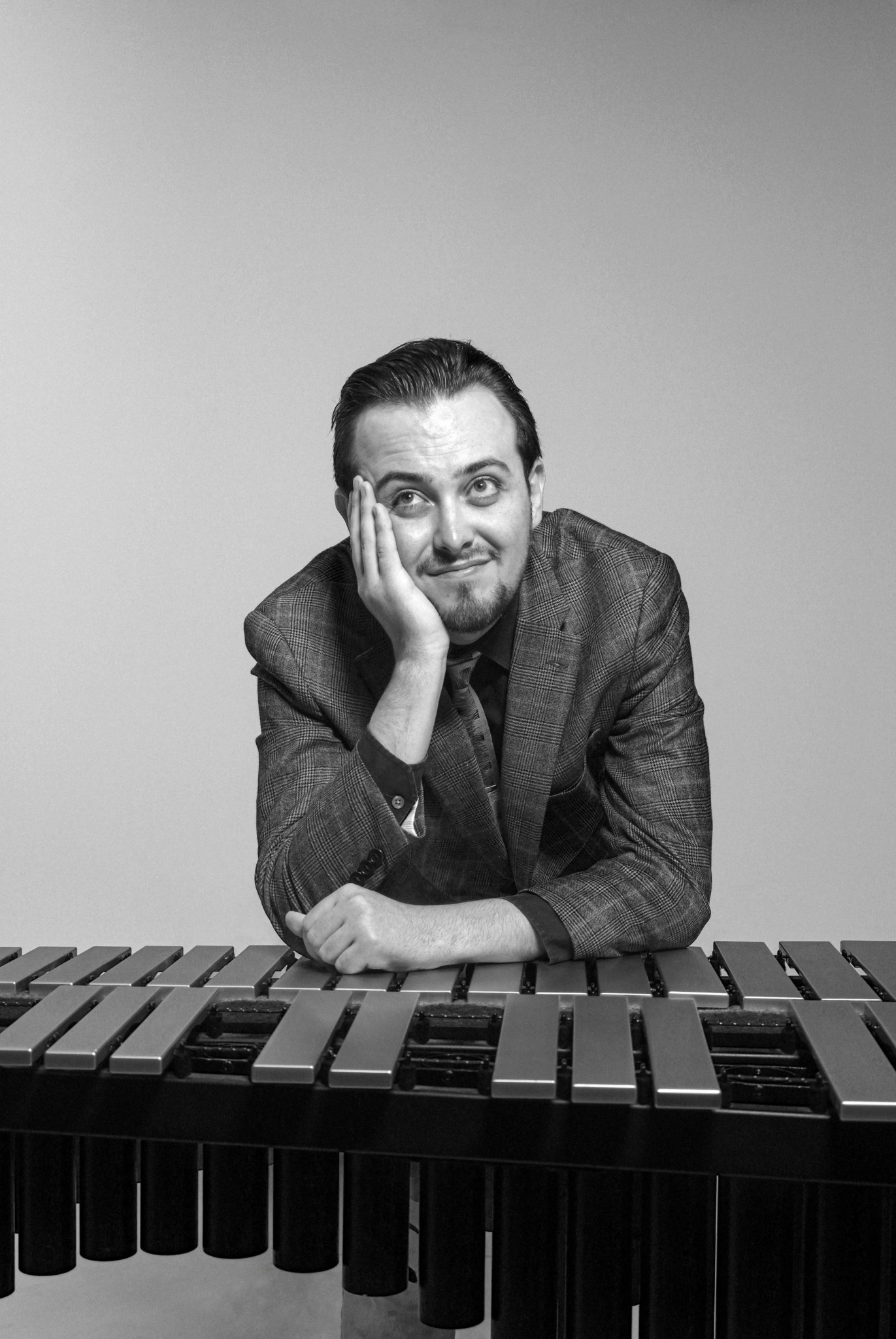We caught up with the brilliant and insightful Rocco Williams a few weeks ago and have shared our conversation below.
Rocco, thanks for taking the time to share your stories with us today How did you learn to do what you do? Knowing what you know now, what could you have done to speed up your learning process? What skills do you think were most essential? What obstacles stood in the way of learning more?
My artistic journey has brought me to quite a few interesting stops with huge forks in the road. The first fork in the road that I encountered was the choice between continuing my education as a drummer or committing full-time to a career as a vibraphone player. I have so much respect for percussionists who can “do it all” but for me, I have continued to find myself choosing to primarily identify as a vibraphone-specialist. My first vibraphone instructor, Greg Tanner Harris absolutely amazed me with his mastery of multiple instruments and electronics, and Greg set me on a great path to study this instrument. In school, I was introduced to the music of Lionel Hampton and Milt Jackson (who are two of the single most important individuals to ever play the vibraphone) and I felt my love grow ever deeper when I had artists who I could actually listen to who have amazing sonic mastery over the instrument, and in completely different ways too. The vibraphone is not exactly a popular instrument, especially when I started to play music. It’s popularity amongst the music community has tripled in the past 10 years, which is great, but the craft and education is still being developed since the instrument itself is just over 100 years old. I mean hell, it’s newer than the saxophone! To truly understand the craft of the vibraphone you have to look at its roots. It was initially invented as an instrument to play wacky noises and background music on the radio in the 1910s. This outlook on the instrument for me, means that not just is it a melodic or harmonic instrument but it is an experimental piece of sonic furniture. When I say “furniture” I am really referring to its textural nature … it’s almost more of an effects toy. Which lends itself perfectly to creating unique sonic environments (unlike anything the ear is conditioned to). Returning to the question, I have almost always been more intrigued in the limits being tested on the vibraphone. My craft is rooted in creating sounds that differ from the common vibraphone tones and standard 12-note scale. Sure, I have spent my 10,000+ hours in the practice room banging away my scales and tunes, but the deeper conceptual part of my practice is where I believe the word “craft” comes in. My “craft” is built upon the deeply intimate relationship with an instrument that was pretty much invented for sound effects. Currently, I am working on a book of microtonal vibraphone concepts and etudes that features a completely new approach to the instrument and the time I have spent approaching the vibraphone by looking the lens of someone completely unfamiliar with the instrument has lent itself nicely to developing a new style that I can call my own.
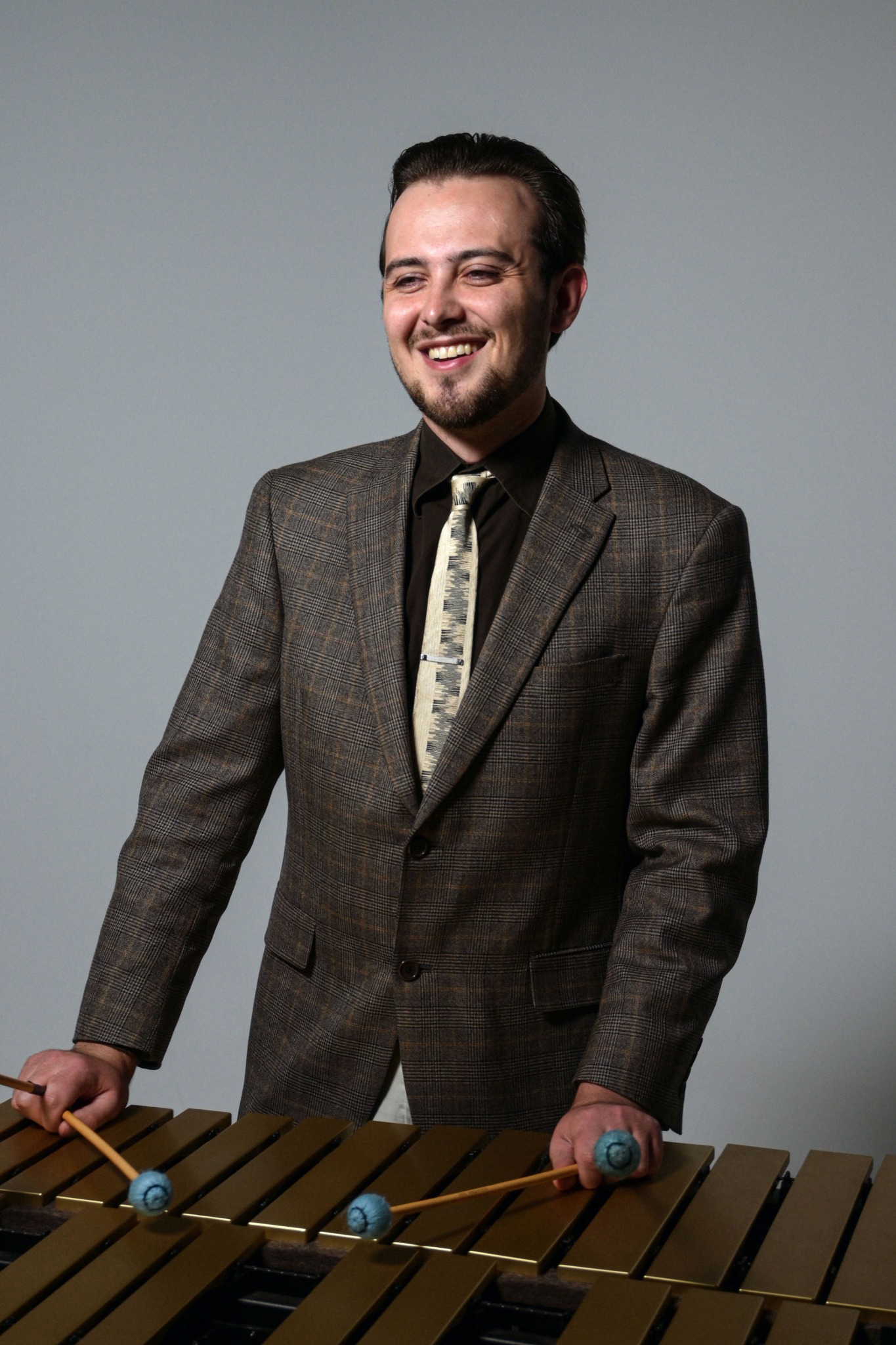
Great, appreciate you sharing that with us. Before we ask you to share more of your insights, can you take a moment to introduce yourself and how you got to where you are today to our readers.
My name is Rocco Lc Williams, and I am a sponsored Marimba One Artist, vibraphonist, composer, and educator. I am from Denver, Colorado where through the mentorship of multiple world-class musicians, I have been able to build my own career in music. Currently, I live in Los Angeles, California pursuing my graduate studies at California Institute of the Arts. My primary skills include: jazz improvisation, music pedagogy, film scoring, and composition. I typically prefer to teach in a private setting in-person or over Zoom and all of my former students have gone on to pursue degrees at highly competitive institutions such as Juilliard, the San Francisco Conservatory, and Manhattan School of Music. I am extremely proud of all of my former and current students but the thing I pride myself most on is the time that I took away from music. During 2020 to 2023, I essentially quit music entirely after completing my undergraduate studies and the COVID-19 pandemic made it so I could not attend any institution for my graduate studies at the time. So there I was… gig-less, jobless, and clueless as to how I will make a living. This kind of stress made practicing and writing almost impossible for me. So instead I pursued the only other thing that I was slightly familiar with at the time; being a mechanic and working with motorcycles. I got a job at a local motorcycle shop that primarily dealt with highly customized bikes and that’s where I grew an affinity for riding motorcycles, working on hogs, fabricating custom parts, and it is also where I learned to weld, which continues to feed my creative outlet working with metal and making metal art. However, right around September 2023, I got in a motorcycle accident where I was not wearing protective gear or a helmet. This accident resulted in the shattering of my right hand and in order to prevent long term disfiguration I required surgery where they put a plate in my right hand that I will have in there for the rest of my life. After all of this, I was left at home for 6-8 months for my recovery. Am I grateful that I shattered my right hand and got a concussion? No. However, I am so grateful that the accident was not worse and I am still here to share my music with all of my friends and loved ones. My recovery from that accident was hard mentally for me because I wasn’t sure if I would ever be able to play music again on the vibraphone (even if I didn’t want to, it still bothered me deeply that this was the case). Although that was the end of my motorcycle days I still am extremely proud to be a metal fabricator and at-home mechanic. I don’t know any other musicians who have the music-mechanic bag like I do,
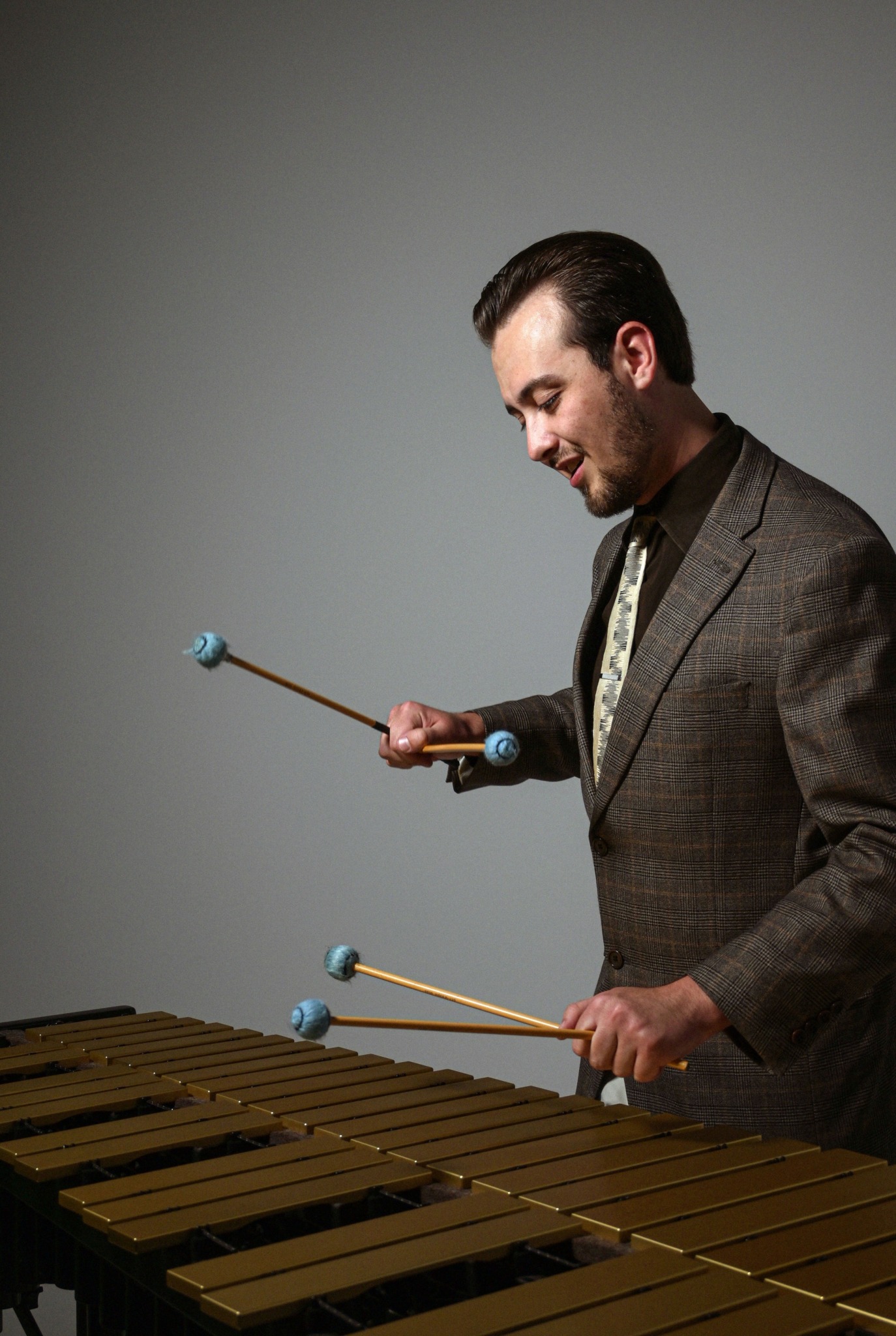
Is there a particular goal or mission driving your creative journey?
The goal that I have for my music is to compose things that challenge musicians in ways that they have never been challenged before. I want to create music that people have never thought to be possible. I am all-in on finding sounds that have never been conceived on whatever instrument I write for. Part of this is also creating interesting and texturally complex solo environments for any professionals that improvise on my songs. That being said, I will never compromise the integrity of the music and my goal is to create every offering with love and care. I am also constantly striding to be a musician and composer that everyone wants to work with. I pride myself on my flexibility and love of working with others.
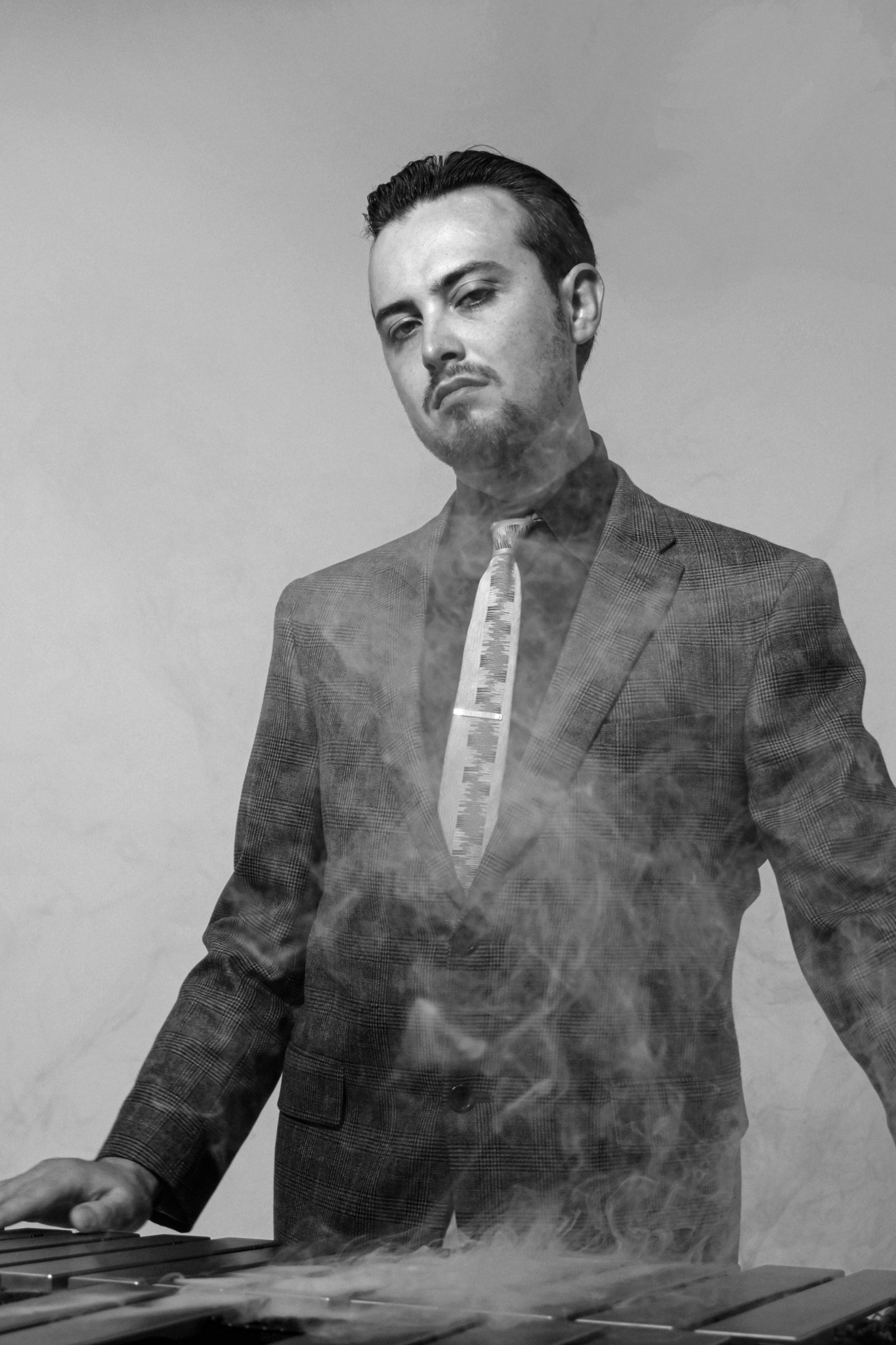
What’s the most rewarding aspect of being a creative in your experience?
For me, it will always be the collaboration with others that fuels my love for the art. I have never had a bad experience collaborating with other professionals and I truly believe that as long as the art we are creating together is strong in concept, it will be strong when fully realized. Even when I am collaborating with other musicians on stage, I still love every second I get to spend with them. TRULY listening and feeling the sounds they are putting out is what inspires me to contribute in meaningful and coherent ways to the performance.
Contact Info:
- Website: https://roccolcwilliamsmusic.com
- Instagram: @rocco_lc_williams
- Facebook: https://www.facebook.com/rocco.l.williams
- Youtube: @roccolcwilliams
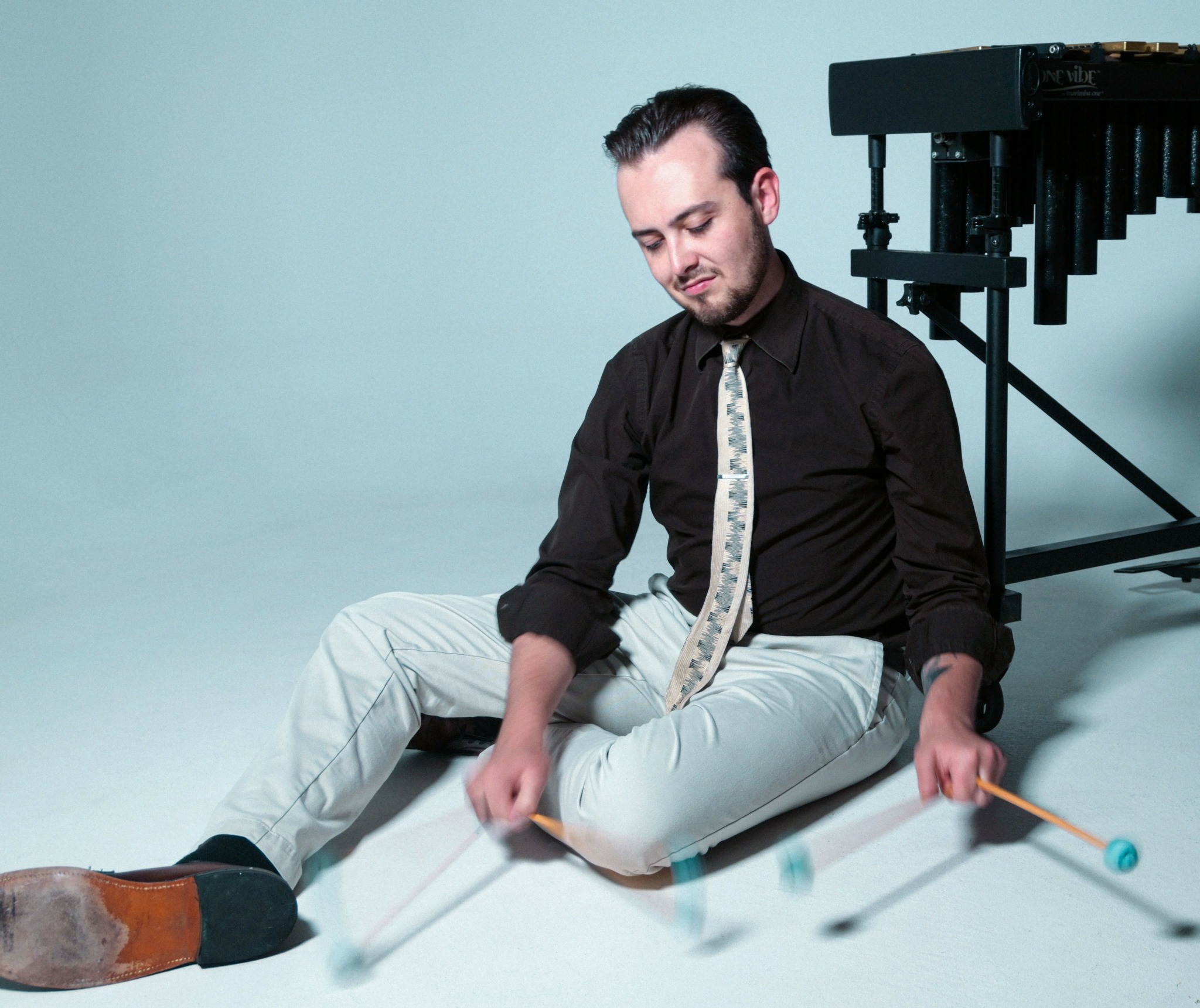
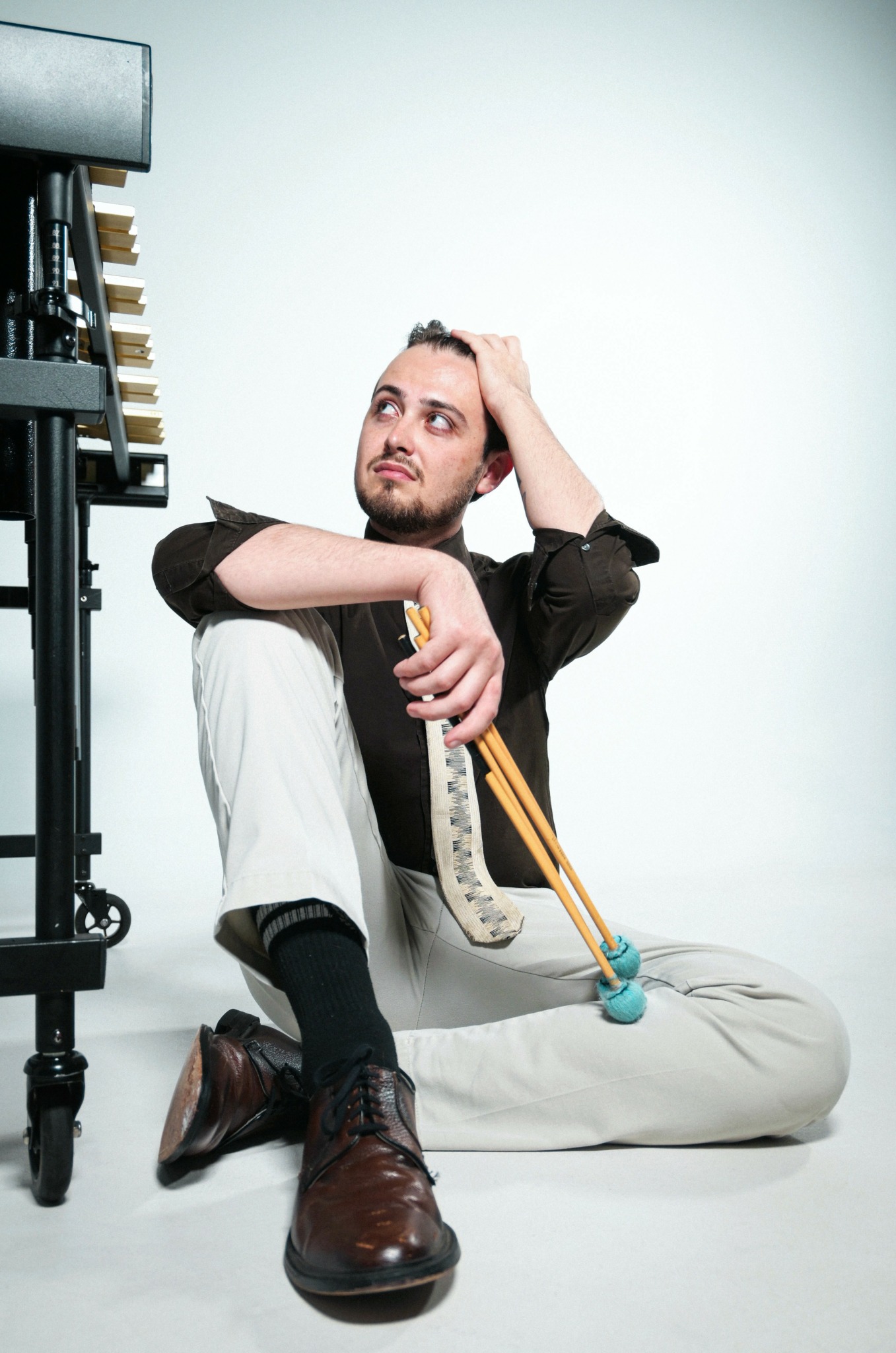
Image Credits
Hannah Rodriguez
Instagram: hannahrod_photo


